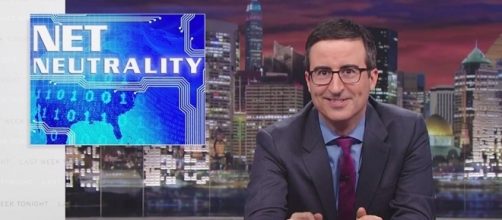John Oliver has a fiercely loyal group of fans. If the comedian asks his fans to do something on his television show, they almost always follow through. One of his favorite targets has been the FCC, and he was at it again on Sunday night. On "Last Week Tonight," the HBO host went after the new battle against Net Neutrality headed by FCC chairman Ajit Pai. Then, he had his fans go to work to crash the government organization's website.
Crashing the website
At the end of a segment taking aim at the FCC and the revived battle of net neutrality, Oliver directed his fans to a website with a sarcastic name.
The page led viewers to another site, where they could publicly file comments to the FCC about the net neutrality issue. File these observations they did, judging from the activity of the website.
Shortly after the HBO show aired, the FCC website crashed. It took at least a day to get the website back operating on a level it would ordinarily function on. The government organization, however, claimed that Oliver wasn't necessarily directly responsible for the crashing of the website, stating a cyberattack hit them in the aftermath of the airing. Whether that was a result of "Last Week Tonight" or not is unclear, although the timing suggests a likely connection. Nevertheless, the incident furthered a developing controversy surrounding the future of the Internet.
Net neutrality's history with 'Last Week Tonight.'
This was not the first time John Oliver had targeted the issue of net neutrality during his news show. Back in 2014, "Last Week Tonight" delved into the same topic. That resulted in over 45,000 comments being registered to the FCC, temporarily causing their website to go through technical difficulties due to heavy traffic.
The net neutrality laws were originally passed during Barack Obama's administration to make sure website providers of all sizes had equal rights to certain loading speeds and bandwidth on the Internet. Recent talk has been surrounding a possible repeal of those laws. The rolling back of those restrictions would make it easier for big corporations to have faster loading speeds than smaller websites, making the Internet seem less fair to the smaller players. Oliver probably wouldn't be harmed by any new FCC regulations changing the net neutrality as they stand, but he clearly isn't fond of letting big business own another realm of society.


